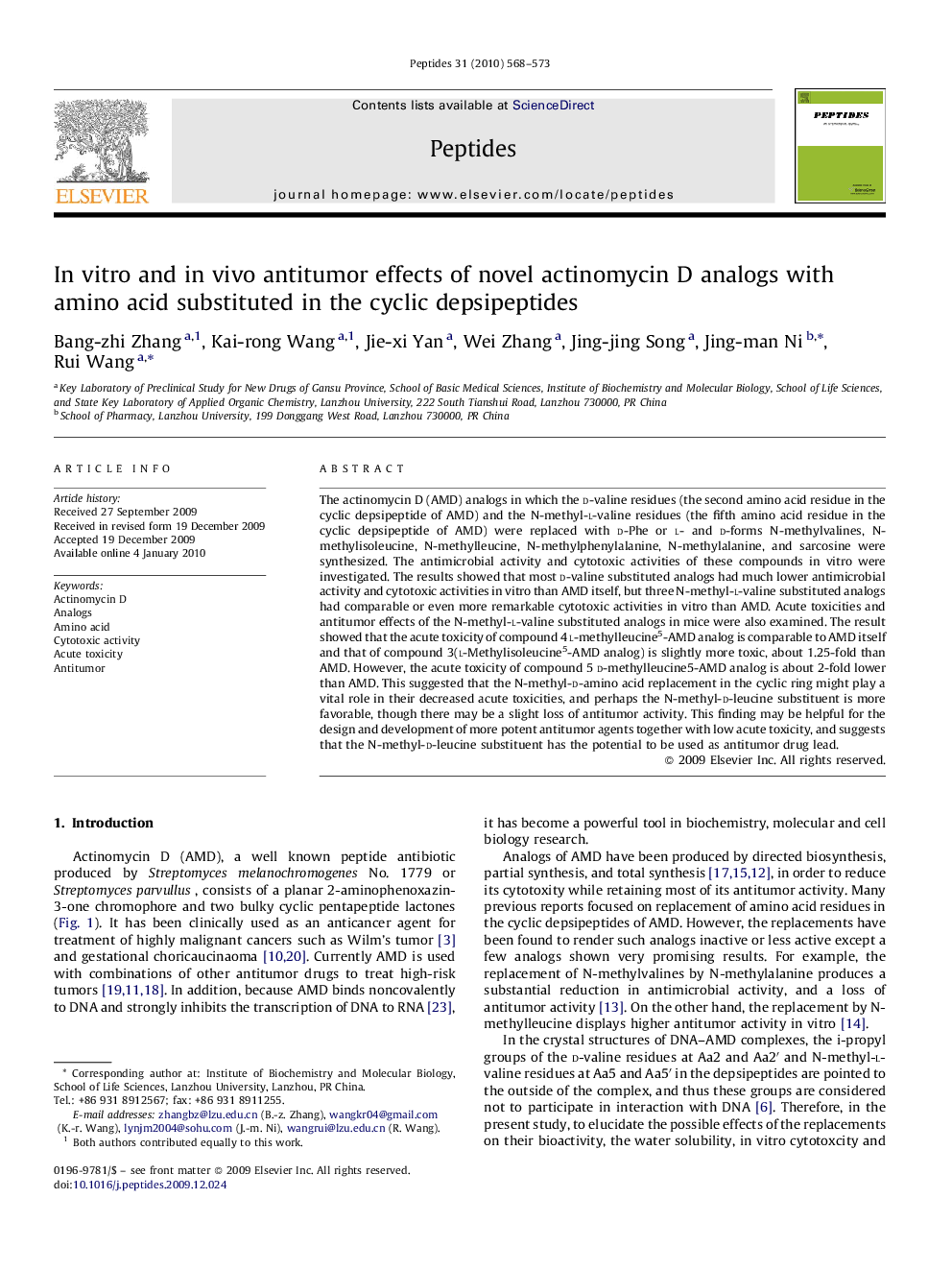| کد مقاله | کد نشریه | سال انتشار | مقاله انگلیسی | نسخه تمام متن |
|---|---|---|---|---|
| 2006879 | 1066357 | 2010 | 6 صفحه PDF | دانلود رایگان |

The actinomycin D (AMD) analogs in which the d-valine residues (the second amino acid residue in the cyclic depsipeptide of AMD) and the N-methyl-l-valine residues (the fifth amino acid residue in the cyclic depsipeptide of AMD) were replaced with d-Phe or l- and d-forms N-methylvalines, N-methylisoleucine, N-methylleucine, N-methylphenylalanine, N-methylalanine, and sarcosine were synthesized. The antimicrobial activity and cytotoxic activities of these compounds in vitro were investigated. The results showed that most d-valine substituted analogs had much lower antimicrobial activity and cytotoxic activities in vitro than AMD itself, but three N-methyl-l-valine substituted analogs had comparable or even more remarkable cytotoxic activities in vitro than AMD. Acute toxicities and antitumor effects of the N-methyl-l-valine substituted analogs in mice were also examined. The result showed that the acute toxicity of compound 4 l-methylleucine5-AMD analog is comparable to AMD itself and that of compound 3(l-Methylisoleucine5-AMD analog) is slightly more toxic, about 1.25-fold than AMD. However, the acute toxicity of compound 5 d-methylleucine5-AMD analog is about 2-fold lower than AMD. This suggested that the N-methyl-d-amino acid replacement in the cyclic ring might play a vital role in their decreased acute toxicities, and perhaps the N-methyl-d-leucine substituent is more favorable, though there may be a slight loss of antitumor activity. This finding may be helpful for the design and development of more potent antitumor agents together with low acute toxicity, and suggests that the N-methyl-d-leucine substituent has the potential to be used as antitumor drug lead.
Journal: Peptides - Volume 31, Issue 4, April 2010, Pages 568–573